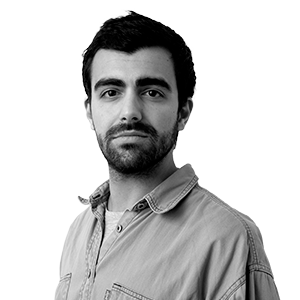HIV-infected people are detected on waiting lists for the preventive pill.
The Government does not know how many people are waiting to receive treatment.


Barcelona"It's an insult to all of us who have been waiting for years. We just want to take care of our health. I feel like I could live my sexuality much more peacefully," explains with resignation Alexis, one of the people waiting to start taking the HIV preventative pill, a treatment called pre-exposure prophylaxis (PrEP). He is 27 years old and has been on the waiting list at the BCN Checkpoint for over a year and a half. This reference center for infection control in Catalonia has around 4,000 people waiting to start treatment, but the wait time is already two years. Professionals complain that they don't have enough resources to treat everyone and lament that the process is taking so long that they are already detecting the first infected people among the users waiting.
"There is an aggravated risk here. It's not just about being patient; it's a matter of not getting infected with HIV, because after that there's no turning back," warns the director of the BCN Checkpoint, Ferran Pujol. Now, the center is calling people who signed up 24 months ago and identifying new infections while they wait to start PrEP. That's why they began a study this week to determine exactly how many people this involves. The Catalan government states that the waiting time for access is "variable," with "more delays" in Barcelona, but the reality is that it is unknown how many people are on the waiting list.
According to the Department of Health, the number of people waiting to access PrEP in Catalonia "could range between 3,000 and 5,000," but at the BCN Checkpoint alone, there are already 4,000, and its director questions the government's data. "We can't know how many people are waiting because we are the only ones with a list; the rest of the centers don't have anyone registered," he states. For example, at the Vall d'Hebron-Drassanes STI Unit, where PrEP is also offered, people are arriving "in dribs and drabs" because they don't have the "capacity to take on new users," and first visits have "practically been nonexistent" for a year, according to union sources.
Another argument the government uses to justify not knowing the number of people who want to start treatment is that "the same person can be registered at more than one center simultaneously and may even have already started." However, many of these centers don't have waiting lists, and those that do, such as BCN Checkpoint, have made sure to avoid these situations. "We have compared the data with that of other centers to eliminate duplications and we can confirm that there are 4,000 people waiting at our center alone," says Pujol, who warns that if more resources are not allocated, the time to obtain PrEP will continue to grow.
"Avoid triumphalist speeches"
The Health Department estimates that 33,479 people are living with HIV in Catalonia and highlights that, between 2020 and 2024, the number of people on treatment has quadrupled, rising from 2,500 to 10,500 in four years. Even so, Pujol believes that "triumphant speeches" should be avoided due to the fact that the number of people on treatment has grown, as he believes the figure would be even higher if the current "accessibility barrier" to access were eliminated. In fact, the director of BCN Checkpoint criticizes the lack of a public campaign to raise awareness of PrEP and explains that today many people are still unaware of its existence.
Furthermore, infected people represent a higher healthcare expenditure than people on treatment. According to a study on the cost-effectiveness of HIV preventive treatment published in the journal PLOS One, the annual cost of PrEP per person in Catalonia is €1,433, while the annual cost for an infected person is €8,534 during the first year and €7,451 in the years following diagnosis. "But I don't want to look at it solely from an economic perspective; PrEP should be provided to everyone who requests it. Their rights are being violated," says Pujol.
Threat to global health
Outside of Catalonia, HIV control is in jeopardy in many countries. Cuts to the US cooperation fund USAID The Trump administration's actions threaten to reverse the progress made so far in eradicating AIDS over the past 25 years and have put global health organizations on alert. The United Nations At the end of March, they quantified the impact on HIV prevention and treatment. and concluded that this could lead to up to 2,000 infections per day.
According to UNAIDS, the lack of funding will also lead to 6.3 million AIDS deaths over the next four years. These estimates represent a major setback in the fight to eradicate AIDS, which affects 40 million people worldwide. In Catalonia, Trump's policies could also have an impact, and some experts predict that in the coming years a significant number of people will arrive from other countries, especially from Africa, to receive HIV preventive treatment, since, with the cuts, many will no longer receive it in their places of origin.
